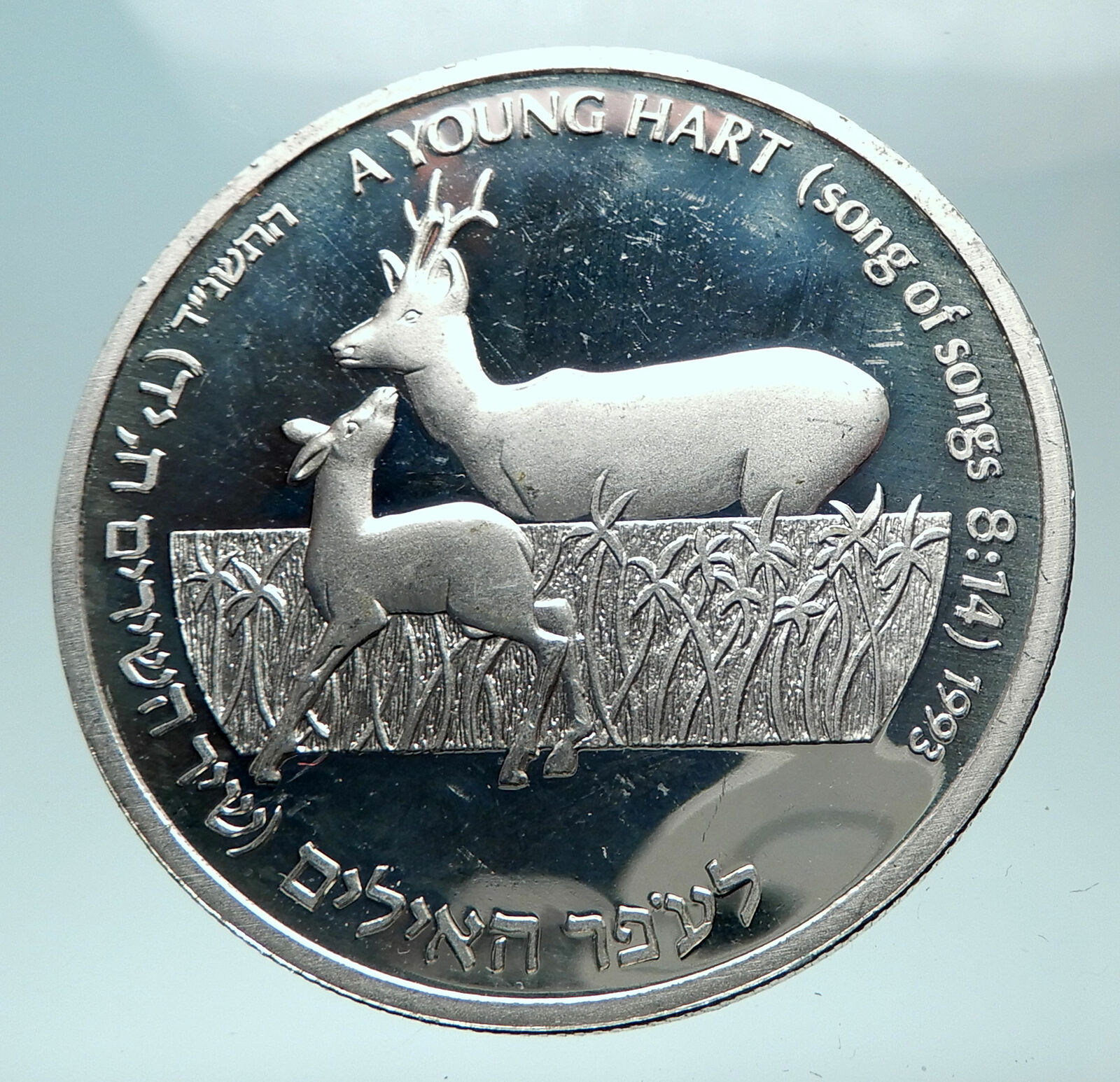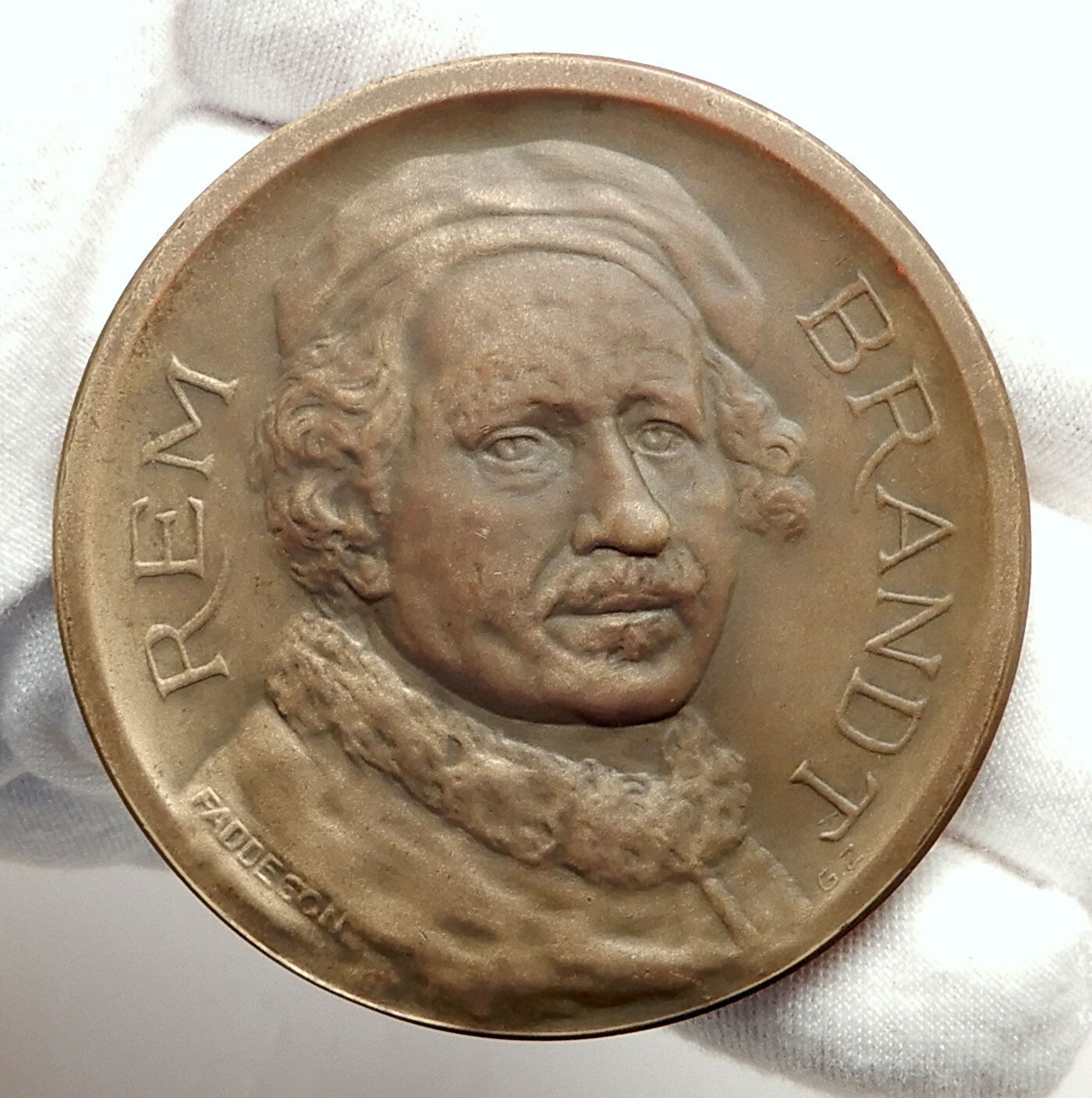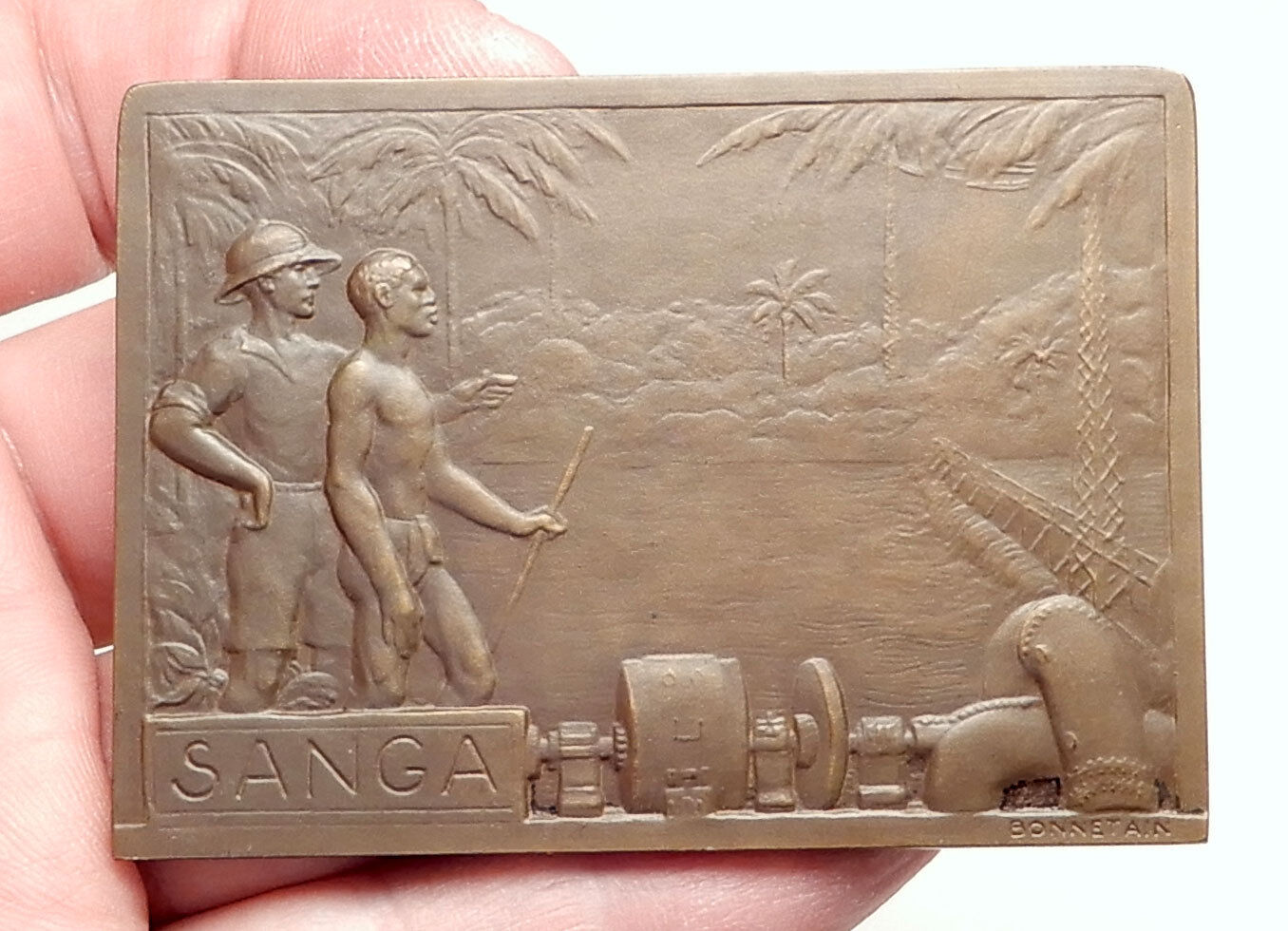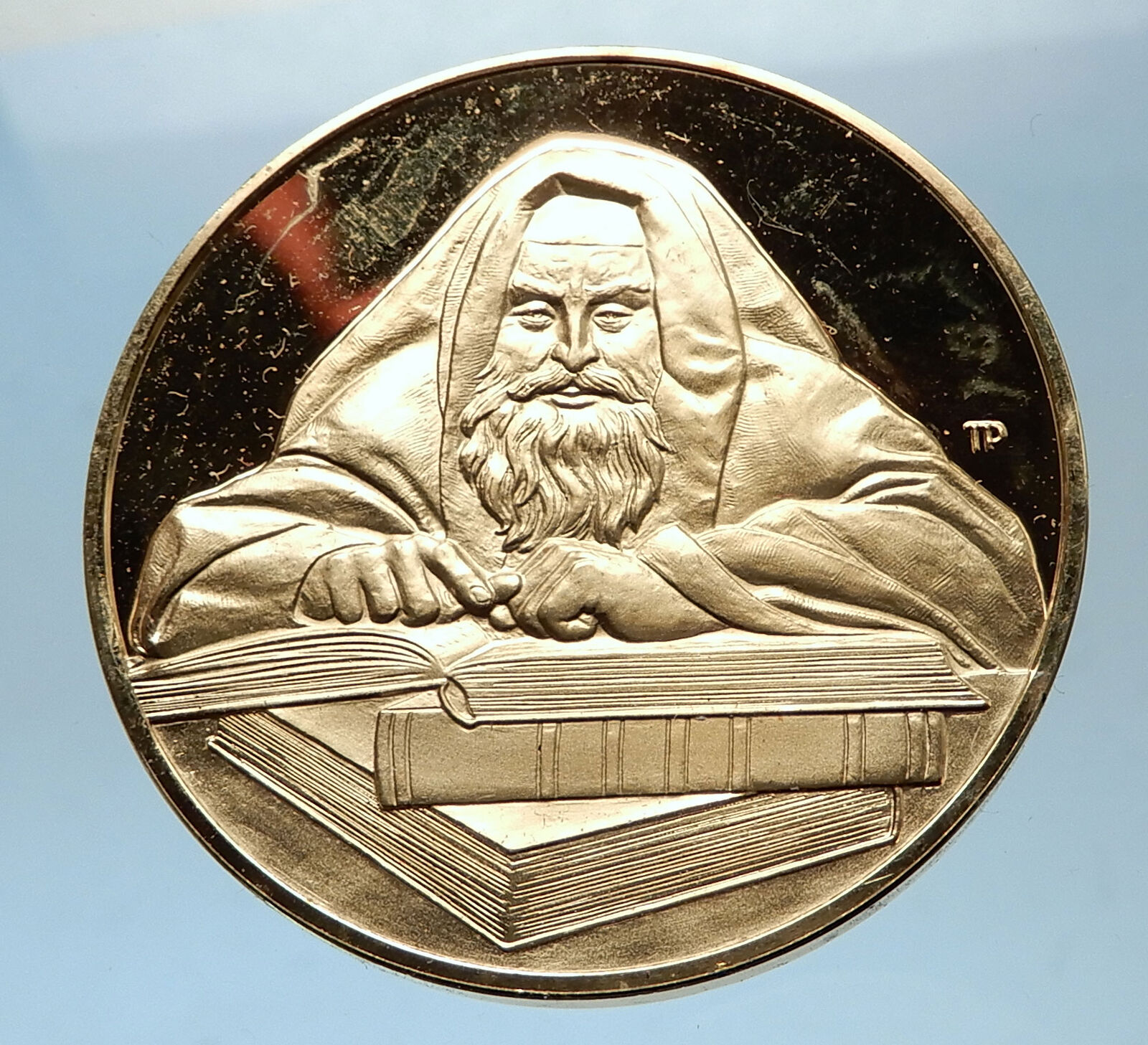|
Germany
Deutsche Bahn – 150 Years
1985 Proof Silver Medal 35mm (15.00 grams)
DB, Three train types intersect paths: steam, high-speed and commuter.
1835-1985 150 JAHRE DEUTSCHE EISENBAHNEN 1000 ic, Triple-stripe train shape runs diagonally to top and bends to right.
You are bidding on the exact item pictured, provided with a Certificate of Authenticity and Lifetime Guarantee of Authenticity.
 Deutsche Bahn AG (abbreviated as DB or DB AG) is the national railway company of Germany. Headquartered in the Bahntower in Berlin, it is a private joint-stock company (AG), with the Federal Republic of Germany being its single shareholder. Deutsche Bahn AG (abbreviated as DB or DB AG) is the national railway company of Germany. Headquartered in the Bahntower in Berlin, it is a private joint-stock company (AG), with the Federal Republic of Germany being its single shareholder.
Deutsche Bahn describes itself as the second-largest transport company in the world, after the German postal and logistics company Deutsche Post / DHL, and is the largest railway operator and infrastructure owner in Europe. Deutsche Bahn was the largest railway company in the world by revenue in 2015; in 2019, DB Passenger transport companies carried around 4.8 billion passengers, and DB logistics companies transported approximately 232 million tons of goods in rail freight transport.
The group is divided into several companies, including DB Fernverkehr (long-distance passenger), DB Regio (local passenger services) and DB Cargo (rail freight). The Group subsidiary DB Netz also operates large parts of the German railway infrastructure, making it the largest rail network in Europe.
The company generates about half of its total revenue from operating rail transport. The other half of the business comprises the further transport and logistics businesses, as well as various service providers. The company generates part of its revenue through public transport contracts; as well as support services for infrastructure maintenance and expansion.
 Germany, officially the Federal Republic of Germany, officially the Federal Republic of  Germany is a federal parliamentary republic in western-central Europe. It includes 16 constituent states and covers an area of 357,021 square kilometres (137,847 sq mi) with a largely temperate seasonal climate. Its capital and largest city is Berlin. With 81 million inhabitants, Germany is the most populous member state in the European Union. After the United States, it is the second most popular migration destination in the world. Germany is a federal parliamentary republic in western-central Europe. It includes 16 constituent states and covers an area of 357,021 square kilometres (137,847 sq mi) with a largely temperate seasonal climate. Its capital and largest city is Berlin. With 81 million inhabitants, Germany is the most populous member state in the European Union. After the United States, it is the second most popular migration destination in the world.
Various Germanic tribes have occupied northern Germany since classical antiquity. A region named Germania was documented before 100 CE. During the Migration Period the Germanic tribes expanded southward. Beginning in the 10th century, German territories formed a central part of the Holy Roman Empire. During the 16th century, northern German regions became the centre of the Protestant Reformation.
The rise of Pan-Germanism inside the German Confederation resulted in the unification of most of the German states in 1871 into the Prussian-dominated German Empire. After World War I and the German Revolution of 1918-1919, the Empire was replaced by the parliamentary Weimar Republic. The establishment of the Third Reich in 1933 led to World War II and the Holocaust. After 1945, Germany split into two states, East Germany and West Germany. In 1990, the country was reunified.
 In the 21st century, Germany is a great power and has the world’s fourth-largest economy by nominal GDP, as well as the fifth-largest by PPP. As a global leader in several industrial and technological sectors, it is both the world’s third-largest exporter and importer of goods. Germany is a developed country with a very high standard of living sustained by a skilled and productive society. It upholds a social security and universal health care system, environmental protection and a tuition free university education. In the 21st century, Germany is a great power and has the world’s fourth-largest economy by nominal GDP, as well as the fifth-largest by PPP. As a global leader in several industrial and technological sectors, it is both the world’s third-largest exporter and importer of goods. Germany is a developed country with a very high standard of living sustained by a skilled and productive society. It upholds a social security and universal health care system, environmental protection and a tuition free university education.
Germany was a founding member of the European Union in 1993. It is part of the Schengen Area, and became a co-founder of the Eurozone in 1999. Germany is a member of the United Nations, NATO, the G8, the G20, and the OECD. The national military expenditure is the 9th highest in the world. Known for its rich cultural history, Germany has been continuously the home of influential artists, philosophers, musicians, sportsmen, entrepreneurs, scientists and inventors.
|







 Deutsche Bahn AG (abbreviated as DB or DB AG) is the national railway company of Germany. Headquartered in the Bahntower in Berlin, it is a private joint-stock company (AG), with the Federal Republic of Germany being its single shareholder.
Deutsche Bahn AG (abbreviated as DB or DB AG) is the national railway company of Germany. Headquartered in the Bahntower in Berlin, it is a private joint-stock company (AG), with the Federal Republic of Germany being its single shareholder. Germany, officially the Federal Republic of
Germany, officially the Federal Republic of  Germany is a federal parliamentary republic in western-central Europe. It includes 16 constituent states and covers an area of 357,021 square kilometres (137,847 sq mi) with a largely temperate seasonal climate. Its capital and largest city is Berlin. With 81 million inhabitants, Germany is the most populous member state in the European Union. After the United States, it is the second most popular migration destination in the world.
Germany is a federal parliamentary republic in western-central Europe. It includes 16 constituent states and covers an area of 357,021 square kilometres (137,847 sq mi) with a largely temperate seasonal climate. Its capital and largest city is Berlin. With 81 million inhabitants, Germany is the most populous member state in the European Union. After the United States, it is the second most popular migration destination in the world. In the 21st century, Germany is a great power and has the world’s fourth-largest economy by nominal GDP, as well as the fifth-largest by PPP. As a global leader in several industrial and technological sectors, it is both the world’s third-largest exporter and importer of goods. Germany is a developed country with a very high standard of living sustained by a skilled and productive society. It upholds a social security and universal health care system, environmental protection and a tuition free university education.
In the 21st century, Germany is a great power and has the world’s fourth-largest economy by nominal GDP, as well as the fifth-largest by PPP. As a global leader in several industrial and technological sectors, it is both the world’s third-largest exporter and importer of goods. Germany is a developed country with a very high standard of living sustained by a skilled and productive society. It upholds a social security and universal health care system, environmental protection and a tuition free university education.




